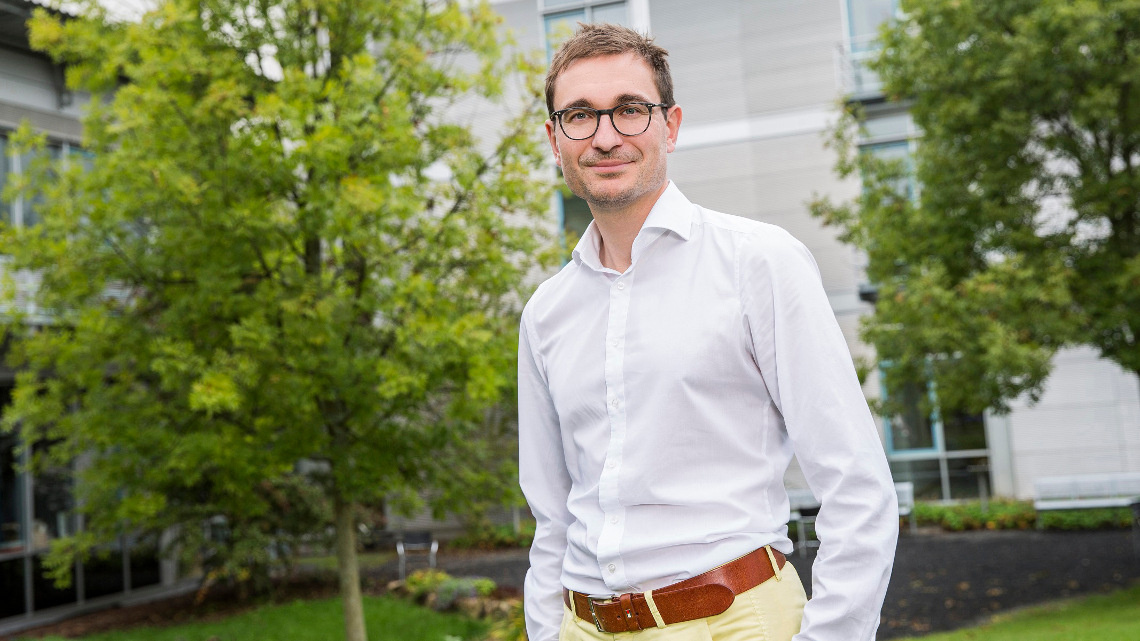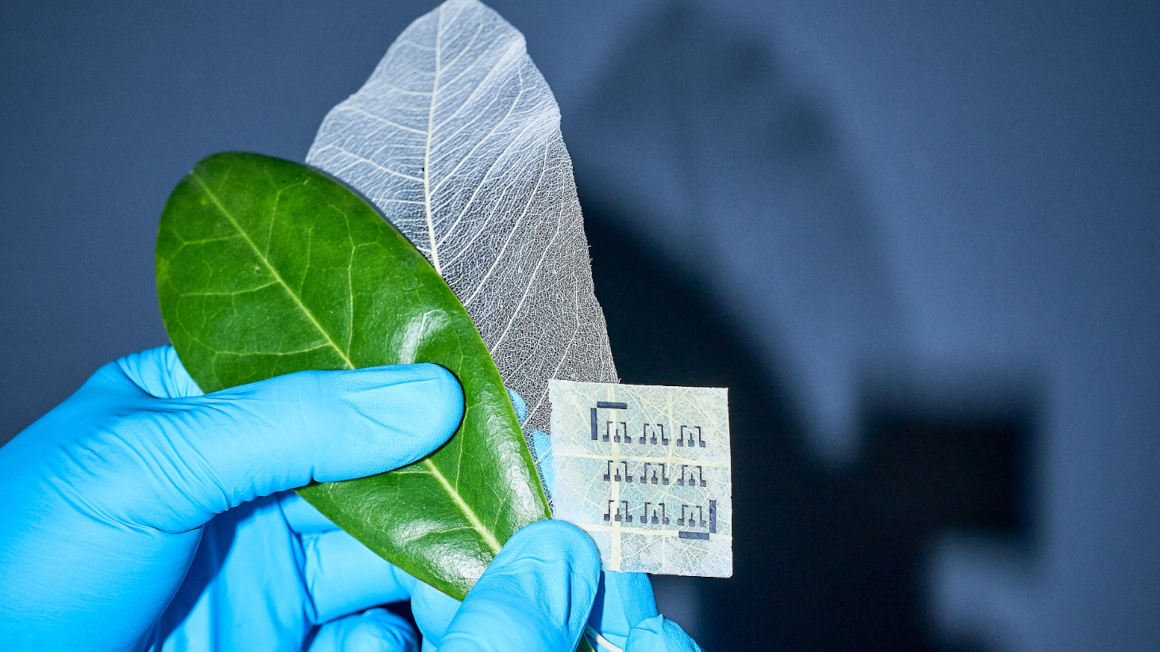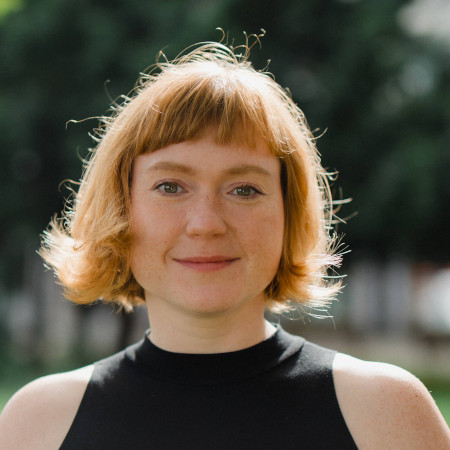Otto Bayer Award for artificial photosynthesis
Tobias Erb, scientist at the Max Planck Institute for Terrestrial Microbiology in Marburg, received the Otto Bayer Award for his achievements regarding artificial photosynthesis.

There are two sides to everything – even carbon dioxide (CO2): on the one hand the rapid increase in atmospheric CO2 concentration due to the burning of fossil fuels causes intensification of the greenhouse effect, which in turn fuels global warming. On the other hand, CO2 is essential to keep plants, algae and some bacteria alive: they convert the greenhouse gas into biomass in a process known as photosynthesis, in which CO2 and water are used to produce sugars and oxygen. This three-billion-year-old process is relatively slow and inefficient, however. The key biocatalyst of photosynthesis, an enzyme called RuBisCO, converts only five to ten CO2 molecules per second on average.
Award for ground-breaking discovery
Tobias Erb, Head of the Biochemistry and Synthetic Metabolism department at the Max Planck Institute for Terrestrial Microbiology in Marburg since 2017, and his team managed to isolate a previously unknown enzyme from purple bacteria that converts CO2 up to ten times faster than RuBisCO. In a pioneering experiment, they succeeded in establishing an artificial metabolic pathway for in vitro CO2 conversion based on this highly efficient reaction and other enzymes from nine different microorganisms in an initial step towards artificial photosynthesis. These experiments might in future serve as the basis for a relevant contribution towards meeting human energy and food requirements while at the same time reducing the amount of CO2 in the atmosphere. For this ground-breaking discovery Tobias Erb was now honoured with the 2018 Otto Bayer Award by the Board of Trustees of the Bayer Science & Education Foundation, which is worth €75,000.
Artificial metabolic processes for the future
Ernst-Ludwig Winnacker, Chairman of the Foundation’s Board of Trustees, explains, “Photosynthesis is the best-known process of carbon dioxide conversion. Tobias Erb’s research has led him to discover previously unknown CO2-converting mechanisms in microorganisms, and he is seeking new artificial metabolic processes, that could be used in the future so that CO2 can become a sustainable raw material.”
The Otto Bayer Award is one of the most prestigious honours for life scientists in German-speaking countries. It honours scientists who have conducted pioneering research in innovative areas of biochemistry and chemistry. It has been presented since 1984 in memory of its endower and the inventor of polyurethane chemistry, Professor Otto Bayer. The prize is awarded by the Bayer Science & Education Foundation. The foundation sees itself as a promoter of innovation and a pioneering spirit at the interface between industry, academia and civil society. Its primary objectives are the recognition of outstanding achievements in research, the promotion of science talents and support for innovative school projects in biology and chemistry.
jmr


